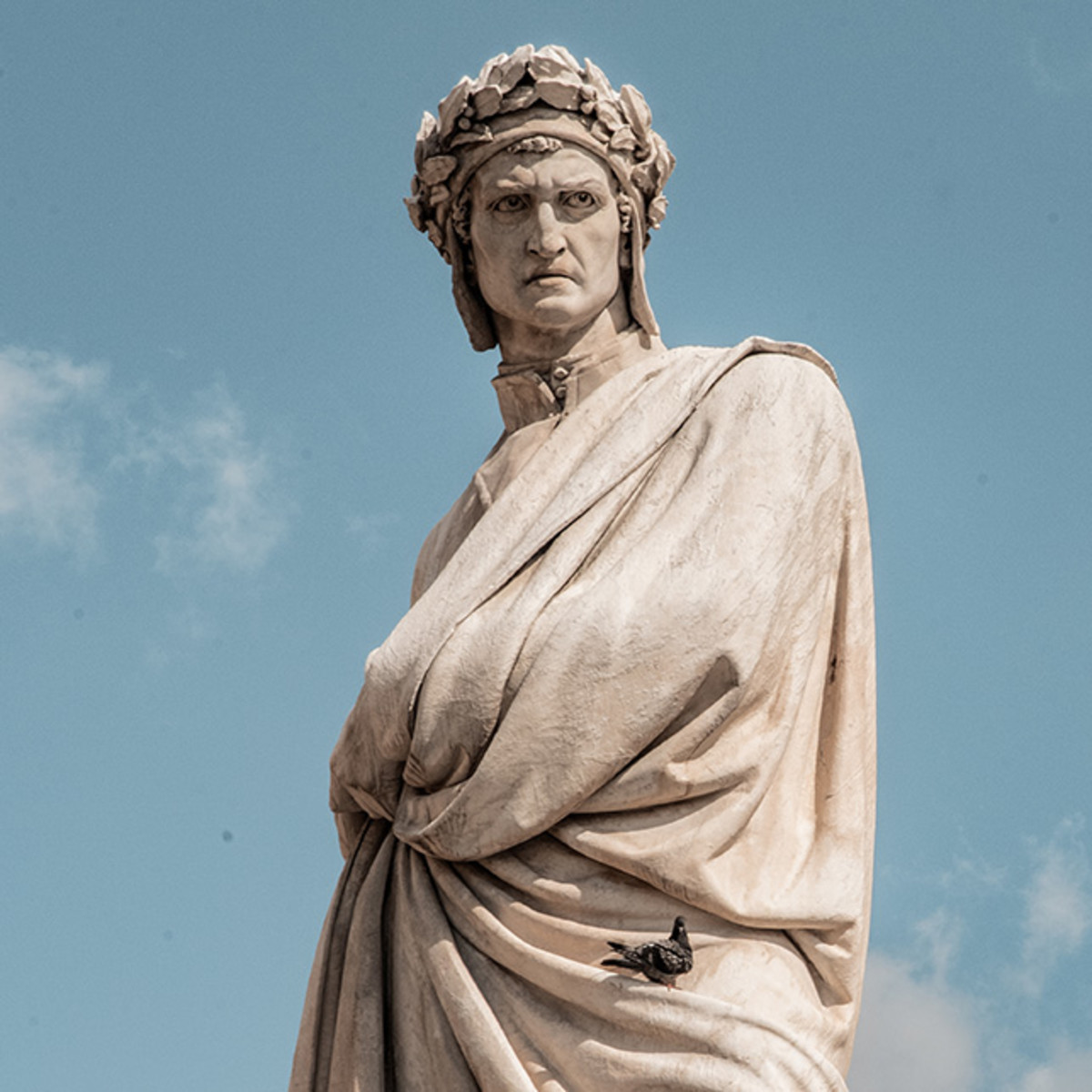The Convivio, Book 1 Chapter 1 By Dante Alighieri
The Convivio
by Dante Alighieri
translated by Richard Lansing
Chapter 1
As the Philosopher says at the beginning of the First Philosophy, all men by nature desire to know.(1) The reason for this can be and is that each thing, impelled by a force provided by its own nature, inclines towards its own perfection. Since knowledge is the ultimate perfection of our soul, in which resides our ultimate happiness, we are all therefore by nature subject to a desire for it. Many are, however, deprived of this most noble perfection by various causes within and outside of man which remove him from the habit of knowledge. Within man there exist two kinds of defects which impede him, one pertaining to the body, the other to the soul. That pertaining to the body occurs when its parts are not properly disposed, so that it can receive nothing, as is the case with the deaf, the dumb, and the like. That pertaining to the soul occurs when malice overcomes it, so that it becomes the follower of vicious pleasures, by which it is so deceived that because of them it degrades the worth of all things. Likewise outside of man two causes may be discerned, one of which subjects him to necessity, the other to indolence. The first consists of domestic and civic responsibilities, which properly engage the greater number of men, so that they are permitted no time for contemplation. The other is the handicap that derives from the place where a person is born and bred, which at times will not only lack a university but be far removed from the company of educated persons.
Two of these causes, namely the first from within and the first from outside, are not to be blamed but excused and are deserving of pardon; the other two, although one more than the other, deserve our censure and scorn. Anyone therefore can plainly see upon careful reflection that there remain few who are capable of achieving the habit of knowledge desired by all, and that the handicapped who live forever starved of this food are almost too numerous to count. Blessed are the few who sit at the table where the bread of the angels is eaten, and most unfortunate those who share the food of sheep!(2)
But since man is by nature a friend of all men, and every friend is grieved by defects found in the one he loves, they who are fed at so lofty a table are not without compassion toward those whom they see grazing about on grass and acorns in animal pastures. And since compassion is the mother of generosity, they who possess knowledge always give liberally of their great riches to the truly poor and are like a living fountain by whose waters the natural thirst referred to above is quenched.(3) Therefore I (who do not sit at the blessed table, but, having fled the pasture of the common herd, gather up a part of what falls to the feet of those who do sit there, and who know the unfortunate life of those I have left behind, for the sweetness that I taste in what I gather up piece by piece, and moved by compassion, though not forgetting myself) have set aside for those who are unfortunate something that I placed before their eyes some time ago, by which I have increased their desire.(4)
Wishing now to set their table, I intend to present to all men a banquet of what I have shown them and of the bread which must necessarily accompany such meat, without which it could not be consumed by them. This banquet, being worthy of such bread, offers meat which I intend should not be served in vain. Therefore I would not have anyone be seated there whose organs are ill-disposed because he lacks teeth, tongue, or palate, nor anyone addicted to vice, for his stomach is so full of poisonous and contrary humors that it would not be able to retain my meat. But let come here all those whose human hunger derives from domestic or civic responsibilities, and let them sit at the same table with others likewise handicapped; and at their feet let all those place themselves who do not merit a higher seat because of their indolence; and let each group partake of my meat with bread, for I will have them both taste of it and digest it. The meat of this banquet will be prepared in fourteen ways: that is, in fourteen canzoni, whose subject is both love as well as virtue. By lacking the present bread they possessed some degree of obscurity, so that to many their beauty was more pleasing than their goodness. But this bread (that is, the present explanation) will be the light that renders visible every shade of their meaning.
If in the present work, which is called The Banquet, as I wish it to be, the subject is treated more maturely than in the Vita Nuova, I do not intend by this in any way to disparage that book but rather more greatly to support it with this one, seeing that it understandably suits that one to be fervid and passionate, and this one tempered and mature.(5) For it is proper to speak and act differently at different ages, because certain manners are fitting and praiseworthy at one age which at another are unbecoming and blameworthy, as will be shown below with appropriate reasoning in the fourth book. I wrote the former work at the threshold of my youth, and this one after I had already passed through it. Since my true meaning was other than what the previously mentioned canzoni outwardly reveal, I intend to explain these canzoni by means of an allegorical exposition, after having discussed the literal account, so that both arguments will be savored by those who have been invited to this supper. And if the banquet does not fulfill their expectations, I ask them to attribute every shortcoming not to my will but to my capability; for here it is my desire to be a disciple of complete and loving generosity.
1. The Philosopher Aristotle, whom Dante characteristically refers to by antonomasia, following the traditional practice of his age. The First Philosophy is his Metaphysics, and the citation is to the opening line of Book I, Ch. 1.
2. the bread of the angels A metaphor signifying wisdom.
3. the natural thirst The thirst for knowledge of truth. The same metaphor reappears in Purg. XXI, 1 (“La sete natural”).
4. I placed before their eyes some time ago Dante had written the three canzoni, placed at the beginning of the second, third, and fourth books, some ten years earlier, and now seeks to make their meaning more accessible by extended commentaries, which comprise the prose portion of these books (or treatises). The “meat” is the poetry, the “bread” the commentary.
5. the Vita Nuova Dante’s first literary work (c. 1295), which celebrates his youthful and passionate love for Beatrice. Like the Convivio, it collects a number of poems written at an earlier time and supplies a commentary on their meaning.








Comments
Post a Comment